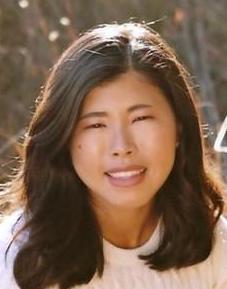Recipient Profile

E-mail: rmckeon2@nd.edu
Language: Korean
Location of Study:Seoul
Program of Study: Yeonsei University Summer Special Program
Sponsors: Liu Institute
Blog URL: http://sites.nd.edu/sla2019/author/rmckeon2/
Pre-departure
A brief personal bio:
M name is Rose McKeon, a freshman at the University of Notre Dame. I’m currently an anthropology major with a minor in Korean. I’ve always had an affinity toward languages; I began with teaching myself French at seven years-old, some Japanese at 12 years-old, and eventually Korean at 14 years-old. Though I studied French in high school, I decided to pursue my burgeoning interest in Korean upon entering university. With my passion for the language as well as encouragement from professors and friends, I intend to use all of my time at Notre Dame to master the language and become fully proficient. I also plan to study abroad in South Korea for a semester, so receiving the SLA grant and studying in Korea this summer excites me as it will prepare me for when I eventually return.
Why this summer language abroad opportunity is important to me:
Fascinated with the Korean culture from an early age, I began teaching myself Korean when I was thirteen. Even before taking my first formal Korean class, I dreamed of being fully proficient in Korean. After my first semester of Korean class, with incredible professors and classmates, I am even more resolute to achieve my goal of being fluent in Korean. Having been chosen to receive the SLA grant, the opportunity to go to Korea will allow me to not only progress further in mastering the language, but more importantly, will allow me to understand the Korean language beyond the classroom and textbook. This grant will provide me with the opportunity to fully grasp the intertwined relationship between the Korean language and culture. Like all languages, Korean is full of nuances that can be best understood in the context of culture, of being there, of living and understanding the what the Korean language really means to Koreans in their day-to-day lives. Upon return from Korea, I will definitely continue my studies of the Korean language and also further engage myself with events and festivities that celebrate Korean culture. I also plan to continually read more about Korea and Koreans, historical and contemporary, to solidify and give context to everything I learn while being in Korea.
What I hope to achieve as a result of this summer study abroad experience:
With the help of an SLA Grant, I will be given the privilege to attend Yonsei University in Seoul, South Korea for their Summer Special Program, which compacts one hundred hours worth of language instruction and cultural immersion lessons that will not only further my progress in learning the Korean language but also give me an advantageous, first hand experience of Korean historical and contemporary culture. The intertwining of Korean culture with the formal Korean language lessons is what draws me to this particular language program. As an anthropology major, or someone who is deeply interested in anthropology, the relationship between language and culture is always intriguing in how words impacts people’s actions, relationships, and terms of identification and kinship. With the help of an SLA Grant, I will be given the privilege to attend Yonsei University in Seoul, South Korea for their Summer Special Program, which compacts one hundred hours worth of language instruction and cultural immersion lessons that will not only further my progress in learning the Korean language but also give me an advantageous, first hand experience of Korean historical and contemporary culture. The intertwining of Korean culture with the formal Korean language lessons is what draws me to this particular language program. As an anthropology major, or someone who is deeply interested in anthropology, the relationship between language and culture is always intriguing in how words impacts people’s actions, relationships, and terms of identification and kinship.
My specific learning goals for language and intercultural learning this summer:
1. At the end of the summer, I will be able to speak in Korean as fluently and as comfortably as I speak in English to engage in conversations both simple and mundane as well as academic and thoughtful.
2. At the end of the summer, I will have an enriched knowledge and understanding of Korean culture- both historical and contemporary.
3. At the end of the summer, I will have developed the necessary skills and savvy of living in a foreign country on my own.
4. At the end of the summer, I will be able to handle school work with recreational activities whilst traveling in a foreign country, like how I’ve been carrying on at home/school in the US.
5. At the end of the summer, I will have gained the linguistic and cultural competency that develops alongside my learning of the Korean language.